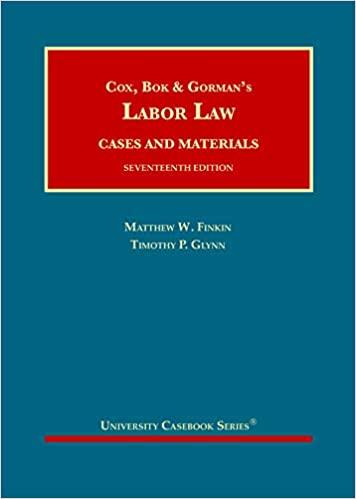Question
Hello, please review my synthesis essay and see of what you think of it. Thank you! Mark Ytac English 12 Assignment 3.4 SYNTHESIS ESSAY Nature
Hello, please review my synthesis essay and see of what you think of it. Thank you!
Mark Ytac
English 12
Assignment 3.4
SYNTHESIS ESSAY
Nature can be described as plain, dazzling, and complicated. In result, it gives inspiration to the writers to compare it to human life. Although readers are familiar with nature, using poets can create imaginations and their feelings to describe one's emotion in a very creative way. In the 3 poems "Big Wind," "Afterglow," and "Loss," these poets have to exploit unique descriptive language that contains moral lessons using nature lateral life. In the poem "Big Wind" by Theodore Roethke, the greenhouse has been compared to an indestructible shelter like a ship. The descriptive language used by Roethke is a metaphor by comparing a greenhouse to a ship. The comparison presents an obstacle and challenges that are very unpredictable that a person has to encounter to become successful in their goals. Moreover, when a person encounters a disadvantage, there will always be a way to endure that obstacle like the greenhouse that survives in the storm. "Buckling into the wind-waves that broke over the whole of her" (Roethke). When the storm ended "She sailed until the calm morning, carrying her full cargo of roses" (Roethke). The connection between a person and nature is that goals are reachable with perseverance. In the 2nd poem "Afterglow" by Jorge Luis Borges, nature parallels life by demonstrating a glow of light when the darkness end. Although nature contributes a small amount of aspect, it is also a symbol to find a life, especially during darkness. The author explains his speculation on darkness; the fear of his emotion using hyperbole literacy "sunset is always disturbing". However, the line "the moment we realize its falsity", shows that it is not the darkness we are a worry but the transition that signifies, like waking up from a nightmare. When a person withstands extreme challenges, it could be worrisome to find the glow of light. Dreams stay in our judgment and we can always change it anytime we want, therefore, we are the conclusion of our own dreams. The author illustrates that the darkness of the human mind is vulnerable and yet, it finds a way to adjust and find the light. Lastly, the poem "Loss by A.R. Ammons, explains how a flower loses hope and finds its way depending on where the wind blows and seeks a new hope. Nature parallels human life with movement and elegance. It also shows how nature and life are important to explore for their society. The poet demonstrates how humans react to prevent an outcome and the flowers revert to the end cycle of the sun. After all the loss of daylight, it gives guidance and growth. "lift their petals up to float of their stems and go". In conclusion, the poem strongly explains that hope is always at the end and it must face any challenges to evolve and learn from mistakes. The three poets also teach us that, nature complements our behavior. It is also expressed using human emotions and not only on speculations. Lastly, nature and life parallel by fighting any hindrances, and all things come to an end no matter what part we fight and acknowledge what we have endured.
Step by Step Solution
There are 3 Steps involved in it
Step: 1

Get Instant Access to Expert-Tailored Solutions
See step-by-step solutions with expert insights and AI powered tools for academic success
Step: 2

Step: 3

Ace Your Homework with AI
Get the answers you need in no time with our AI-driven, step-by-step assistance
Get Started


